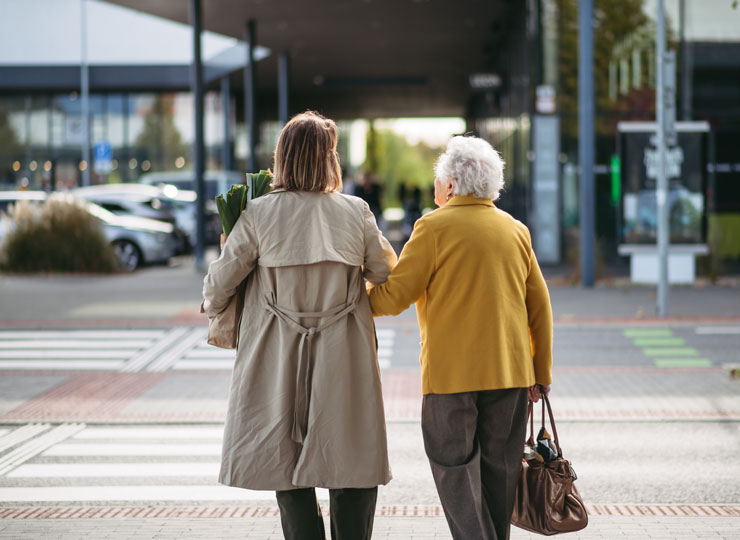
April 3, 2024
When It Comes to Caregiving, Don’t Forget the Role that People With Alzheimer’s Can Play
People with Alzheimer’s disease often rely on spouses and other loved ones to help with daily care. The relationship can be lifegiving and rewarding but also highly stressful. And while much attention has been given to the burden of caregiving, a new paper underscores the importance that people with early Alzheimer’s can play in helping to smooth out the caregiving dynamic.
The study, from researchers at the University of California, Davis, found that couples coping with dementia can navigate the challenges with greater resilience and well-being by working together and supporting each other. The researchers found that while caretakers provide essential support to a loved one with Alzheimer’s, people in the earlier stages of Alzheimer’s can also play a vital role in helping to support their caretakers.
“We know that dementia is degenerative, there’s no way back, and spousal caregivers typically face substantial burden,” said Meng Huo, assistant professor with the Department of Human Ecology at UC Davis and lead author of the study. “But having a mutually beneficial relationship in early stages may help reduce caregiver burden and even slow the progression of dementia symptoms.”
For the study, the researchers looked at 72 couples from Northern California and Nevada. One person was living with early-stage Alzheimer’s disease, while the other, a spouse or other partner, was the primary caregiver.
The researchers found that to varying degrees, both caregivers and patients were able to provide mutual empathy and support. While caretakers performed many of the required day-to-day tasks, those with early Alzheimer’s could also help with practical tasks such as folding laundry, cooking and doing the dishes. The most common type of support that those with Alzheimer’s provided was emotional, including showing appreciation and care for their caregiving partner.
“In one example, the caregiver had surgery,” Dr. Huo said. “The dementia patient talked about how she brought flowers and food when she went to the hospital to see the caregiver, and she encouraged the caregiver to stay socially connected to make sure there’s companionship.”
Dr. Huo said the positive effects of empathy and support on emotional well-being, stress levels, communication and illness management can contribute to better overall health outcomes for individuals with dementia and, also, their caregivers. These results can be used to improve strategies for care by including patients in addition to caregivers.
“Debunking the myth that dementia patients are only recipients of care is crucial,” Dr. Huo said. “Recognizing their potential to help will encourage them to be able to maintain their personal dignity. Dementia patients know they’re declining, but it’s important for them to also know that they can still do a lot of things.” The findings were published in the journal Aging and Mental Health.
By ALZinfo.org, The Alzheimer’s Information Site. Reviewed by Eric Schmidt, Ph.D., Fisher Center for Alzheimer’s Research Foundation at The Rockefeller University.
Source: Meng Huo, Kyungmin Kim, Karen L. Fingerman and Steven H. Zarit: “Empathy and support exchanges in couples coping with early-stage Alzheimer’s disease.” Aging and Mental Health, March 11, 2024. Tiffany Dobbyn, UC Davis.











